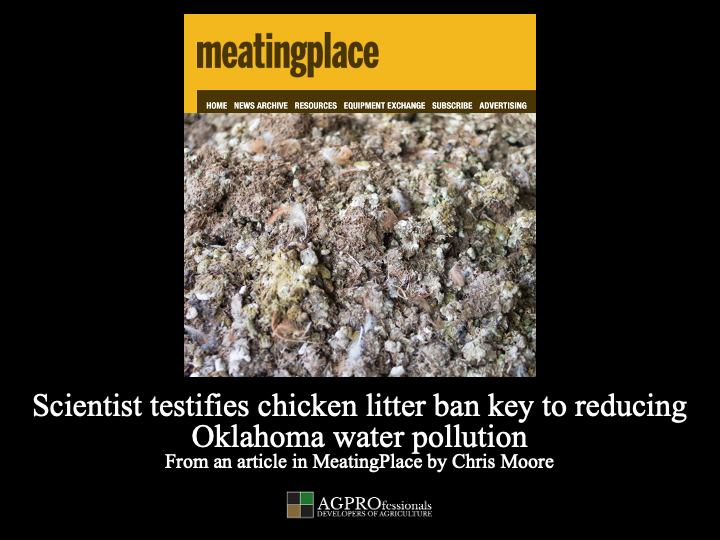Banning the use of chicken litter as fertilizer is the only way to significantly reduce phosphorus pollution in Oklahoma’s eastern waterways, a soil scientist testified in a decades-long lawsuit against Tyson Foods and other poultry companies.
Gregory Scott, with the Oklahoma Conservation Commission, presented his findings during a December hearing, stating that halting the land application of poultry waste is necessary to address water quality issues in the Illinois River Watershed. Rain runoff from chicken litter used as fertilizer has elevated phosphorus levels, depleting oxygen, clouding water, and straining utility systems dependent on the watershed.
The lawsuit, filed in 2005 by then-Attorney General Drew Edmondson, resulted in a 2023 ruling by U.S. District Judge Gregory Frizzell, who found the poultry companies responsible for the pollution. The court is now considering pollution-control measures, as the companies argue the case should be dismissed due to the time elapsed since the 2009 trial.
Attorney General Gentner Drummond’s office presented multiple expert witnesses, including Scott, who also suggested vegetative buffer strips and planting hay in phosphorus-rich areas to mitigate the problem. Removing hay from the watershed could significantly reduce phosphorus levels, Scott testified, according to reporting from Investigate Midwest.
While Scott recommended banning chicken litter fertilizer, Drummond’s office clarified this was not a specific request but part of expert testimony. Drummond has proposed a phosphorus application limit of 65 pounds per acre, far below the current state limit of 300 pounds.
Poultry companies argued during the hearing that increased transportation of chicken litter out of state has mitigated its impact, though one of their witnesses acknowledged the waterways remain impaired by state standards. Judge Frizzell is expected to rule on pollution-control requirements in the case.

